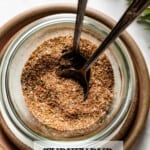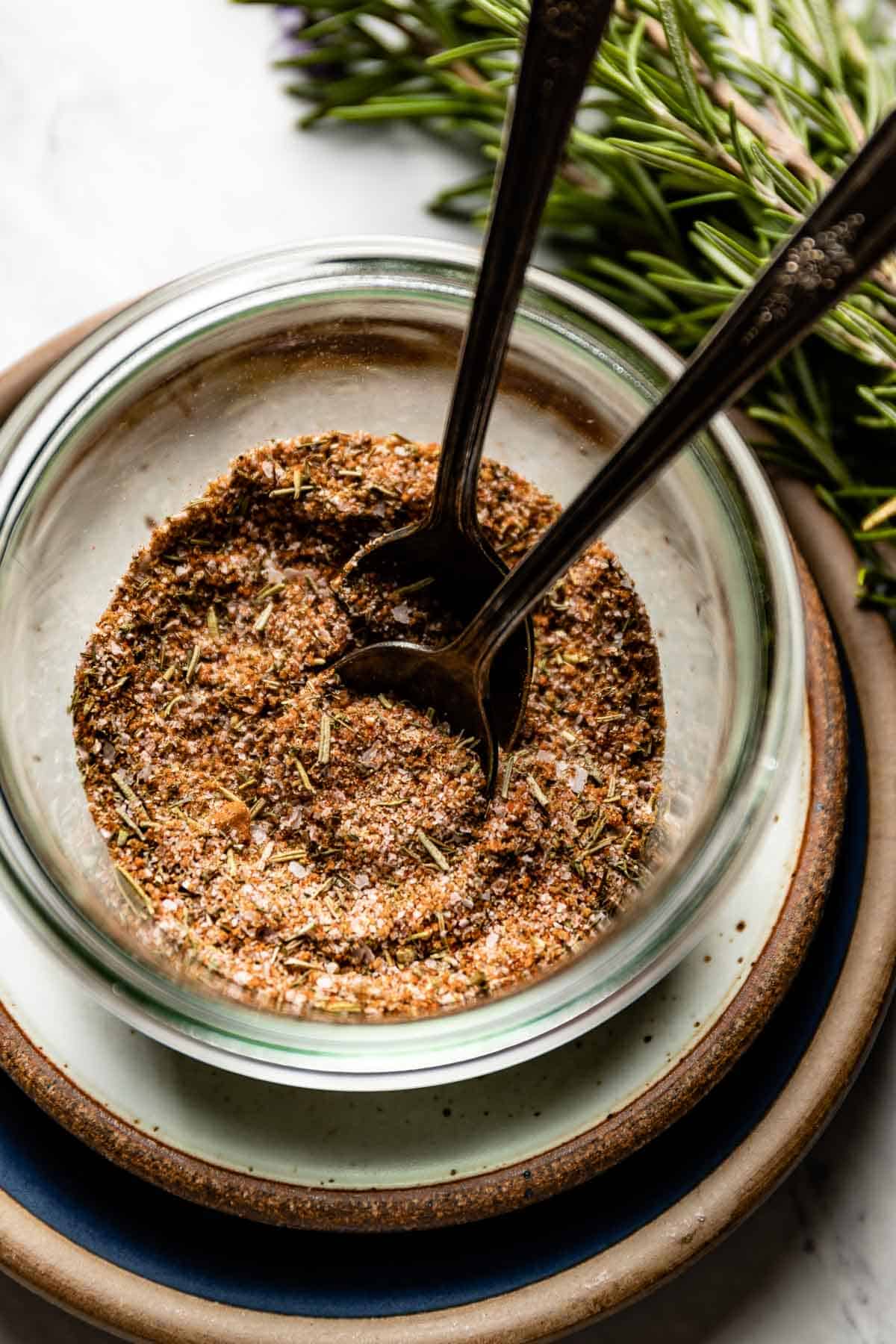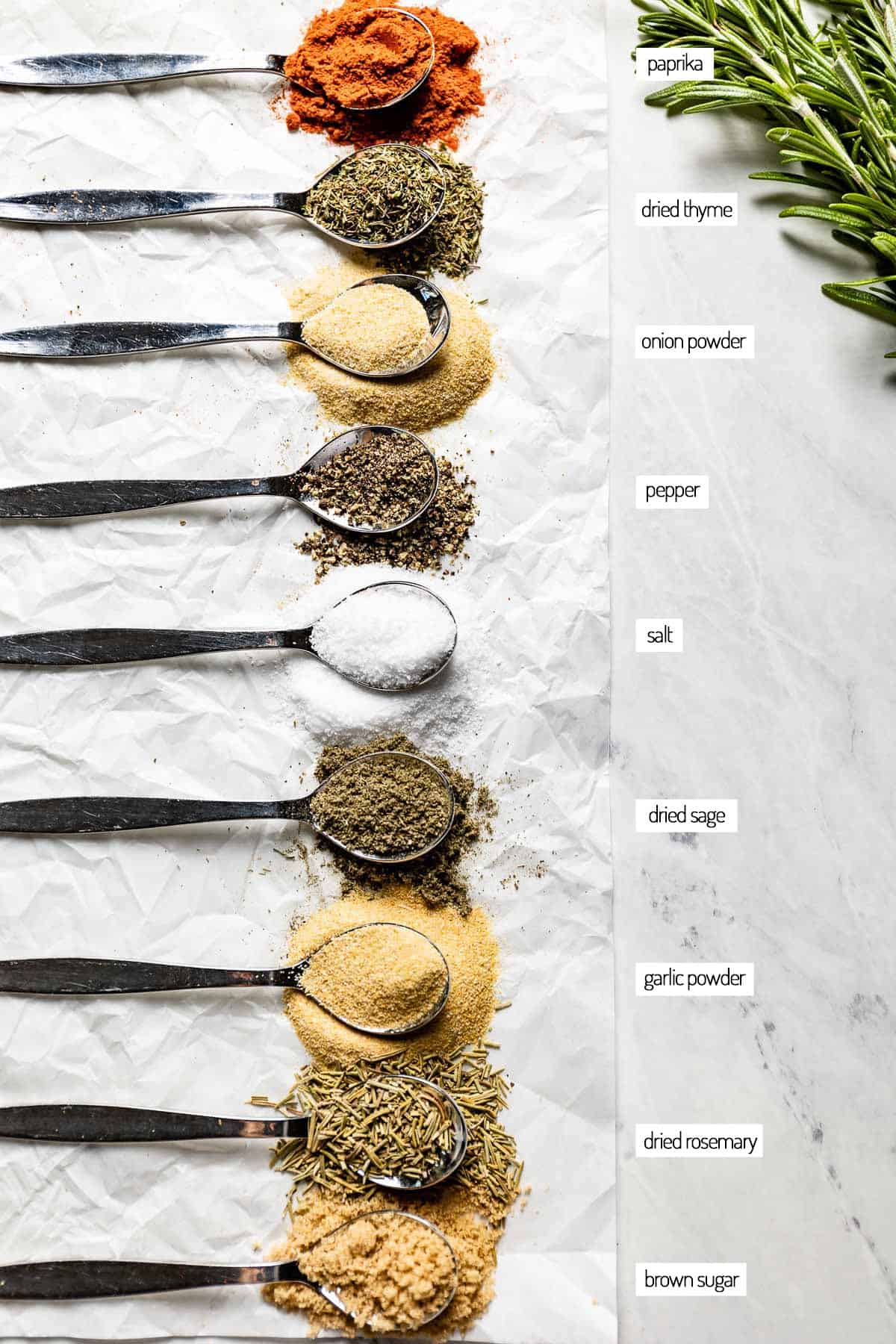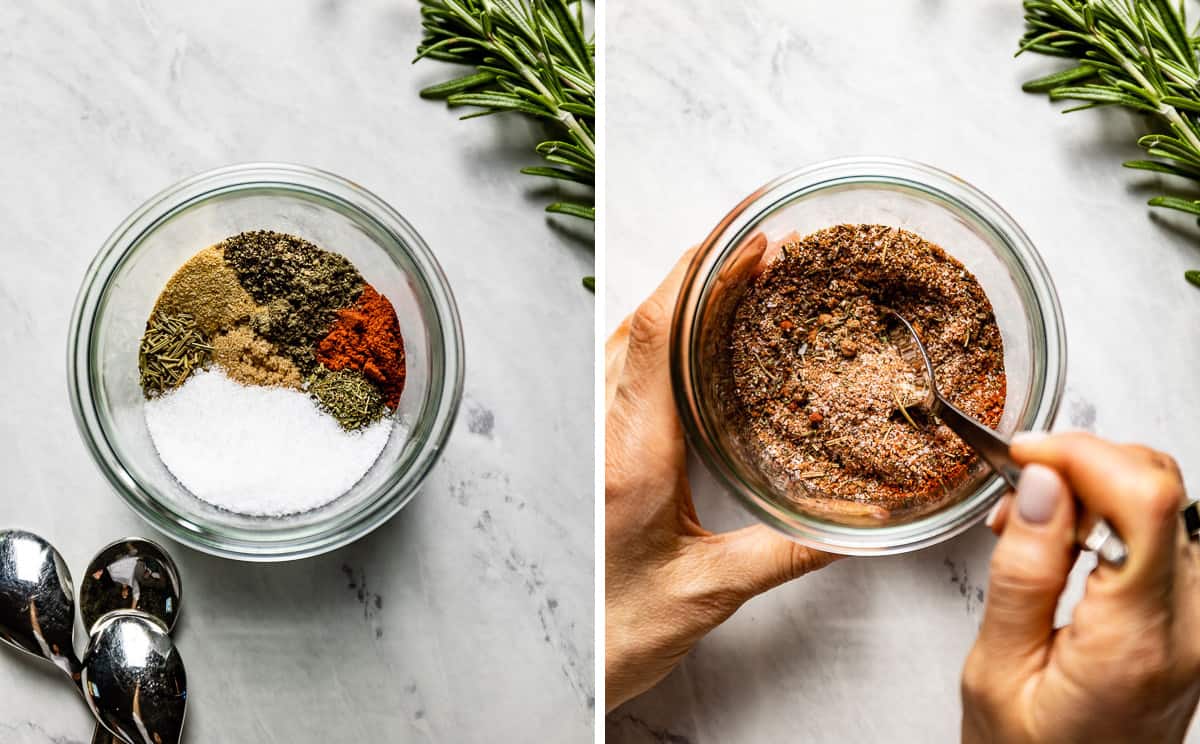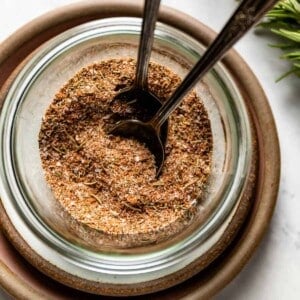Any one of these turkey recipes pairs beautifully with my Sweet Potato Casserole and Maple Cranberry Sauce for a crowd-favorite holiday meal that’s sure to impress. To make the turkey dry rub recipe, gather light brown sugar (or coconut sugar for a refined-sugar free option), paprika (or smoked paprika), dried thyme, dried sage (or oregano), dried rosemary, garlic powder, onion powder, kosher salt, and black pepper.
Sugar: I made a brown sugar turkey rub, but you can also substitute coconut sugar for a refined-sugar free rub recipe for turkey. Coconut sugar is similar to brown sugar in taste and appearance, leaving you with a very similar flavor profile. You can also completely omit the sugar for a sugar-free option. Paprika: You can use either sweet or smoked paprika for this simple turkey rub, but smoked paprika would add extra smoky flavor if you’re using this rub for smoked turkey. If you don’t have paprika on hand, you can substitute chili powder for a little kick of spice. Salt: I generally use (and recommend) Diamond kosher salt (affiliate link) when seasoning the turkey for roasting because it has larger, coarser grains than table salt, making it easier to spread evenly over your food and preventing over-salting. If you must use table salt, use half the amount that the recipe calls for to ensure you don’t over-salt your spice blend. Fresh herbs: If you’re making this turkey rub seasoning recipe for a Thanksgiving dinner or holiday meal and have leftover fresh herbs from other recipes, you can put them to good use in this blend of savory spices. When substituting fresh thyme, rosemary, sage, or oregano, make sure to give the herbs a good chop and use double the amount that the recipe calls for. Other spices to add: If you and your family are spice fanatics, kick this homemade spice rub up a notch by adding a ¼ teaspoon of cayenne pepper or red pepper flakes for some great flavor. You can also add about a half teaspoon of crushed bay leaves for a festive flavor for holiday turkey. Last minute additions: If you juiced a lemon or an orange for one of your holiday recipes, don’t throw it away just yet. You can use the peel to add lemon zest or orange zest to your seasoned roasted turkey, which will add brightness and a subtle tangy flavor.
How to Season a Turkey Before Roasting
If you’re using this turkey spice rub for your Thanksgiving bird, you’ll want to season it a minimum of 12 hours and a maximum of 24 hours before cooking (I’ve found that 12 hours is the best way to go). Also, if you purchased a frozen turkey from the grocery store, make sure to thaw it before applying the homemade turkey rub. Follow the steps below for an easy way to achieve a perfectly seasoned turkey that’s ready for the oven: The addition of fat helps the skin crisp up nicely and gives the turkey that beautiful, golden-brown appearance. A great example of this is our Compound Butter for Turkey recipe. As an added bonus, the pan juices, extra seasoning, and butter or olive oil left at the bottom of the pan create an incredibly flavorful gravy that you can pour over the turkey once it’s roasted. If you choose to make a wet rub, add a half cup of softened butter to your homemade turkey seasoning rub, mix, and apply to the outside of the turkey. If you try this homemade Turkey Rub Recipe or any other recipe on Foolproof Living, please take a minute to rate the recipe and leave a comment below. It helps others who are thinking of making the recipe. And if you took some pictures, be sure to share them on Instagram using #foolproofeats so I can share them on my stories.
